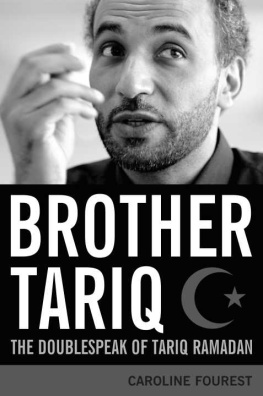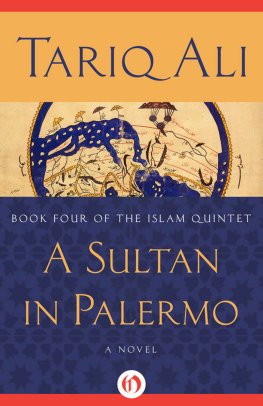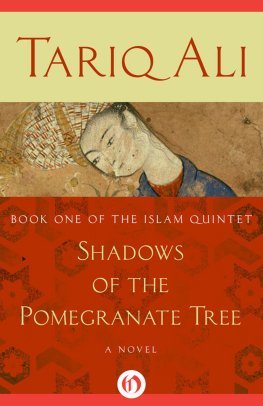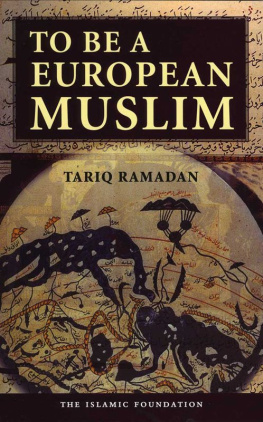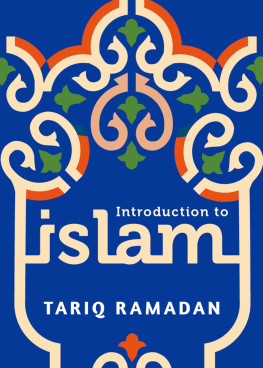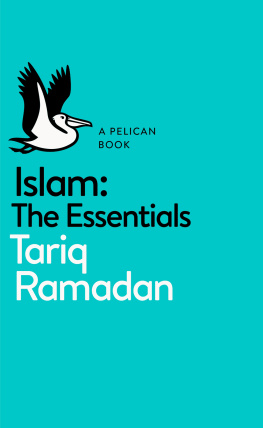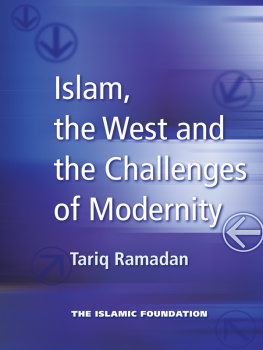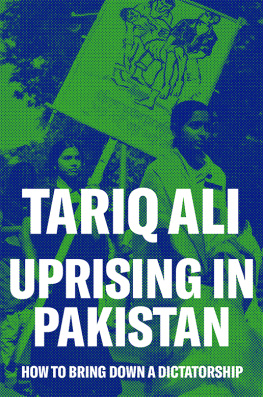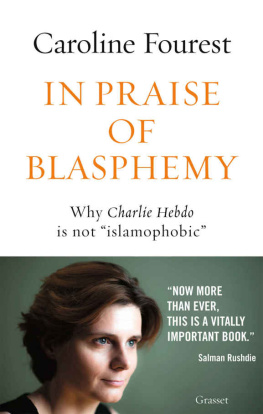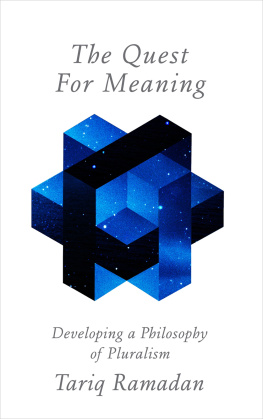Caroline Fourest - Brother Tariq: The Doublespeak of Tariq Ramadan
Here you can read online Caroline Fourest - Brother Tariq: The Doublespeak of Tariq Ramadan full text of the book (entire story) in english for free. Download pdf and epub, get meaning, cover and reviews about this ebook. year: 2009, genre: History. Description of the work, (preface) as well as reviews are available. Best literature library LitArk.com created for fans of good reading and offers a wide selection of genres:
Romance novel
Science fiction
Adventure
Detective
Science
History
Home and family
Prose
Art
Politics
Computer
Non-fiction
Religion
Business
Children
Humor
Choose a favorite category and find really read worthwhile books. Enjoy immersion in the world of imagination, feel the emotions of the characters or learn something new for yourself, make an fascinating discovery.
- Book:Brother Tariq: The Doublespeak of Tariq Ramadan
- Author:
- Genre:
- Year:2009
- Rating:3 / 5
- Favourites:Add to favourites
- Your mark:
- 60
- 1
- 2
- 3
- 4
- 5
Brother Tariq: The Doublespeak of Tariq Ramadan: summary, description and annotation
We offer to read an annotation, description, summary or preface (depends on what the author of the book "Brother Tariq: The Doublespeak of Tariq Ramadan" wrote himself). If you haven't found the necessary information about the book — write in the comments, we will try to find it.
Brother Tariq: The Doublespeak of Tariq Ramadan — read online for free the complete book (whole text) full work
Below is the text of the book, divided by pages. System saving the place of the last page read, allows you to conveniently read the book "Brother Tariq: The Doublespeak of Tariq Ramadan" online for free, without having to search again every time where you left off. Put a bookmark, and you can go to the page where you finished reading at any time.
Font size:
Interval:
Bookmark:

THE DOUBLESPEAK OF TARIQ RAMADAN
CAROLINE FOUREST
Translated into English by Ioana Wieder and John Atherton


xiii
I
III
Triq Ramadan is a global phenomenon, speaking and writing as he does with such great fluency in French, Arabic, and English. Not for centuries has Switzerland had a native son who enjoyed such fame and impact as a communicator. In Europe, he is the most quoted and circulated writer on his religion, Islam, and on the issues related to the Muslim community in Europe and further afield.
Despite being an author with several books to his name, and a regular contributor to the opinion pages of the world's newspapers, it is at rallies in France, or at Muslim gatherings in Africa, the Middle East, and elsewhere that Tariq Ramadan makes many of the telling interventions that reveal his thinking and his ambitions. Most are recorded, to be played later to a wider audience, as guidance or as religious-political talks. Caroline Fourest has done us a great service by listening to, transcribing, and translating Ramadan's words, since the picture on offer to those who only read his books or columns in English, or who only hear him speak at conferences in Britain, is necessarily limited. Ramadan grew up in a Francophone culture and spoke Arabic from birth. His profile is very different in France and in Switzerland, and for anyone who seeks to understand him, this biography is essential reading.
In spite of having been born in Switzerland and educated in the Frenchspeaking part of that country (the question of his higher academic qualifications and the reasons that led him to quit his job as a schoolteacher make interesting reading), Ramadan stresses his family background as the grandson of the founder of the Muslim Brotherhood and as the son of the main propagator and propagandist of Muslim Brotherhood ideas beyond Egypt after 1950.
For most of the twentieth century, the different currents of religious politics in the Muslim world were little known beyond a narrow circle of specialists in Europe's universities and research institutes. The politics of the Arab world, particularly in the second half of the last century, saw a confusing mixture of regimes-some cast in a nationalist, socialist, fascistic, or authoritarian European mold, others based on absolute monarchies blessed with unlimited oil wealth.
The interstices of ideology and religious belief are difficult to trace. The abolition of the Caliphate and the rise of a proto-modern state, Turkey, with its largely Muslim population, further complicate the picture-as indeed do the quarrels between different branches of Islam, notably the Sunni-Shia conflict.
A further twist of the kaleidoscope of political and religious identity in the Arab world came from the issue of the Jewish right to create a state called Israel in a part of the world that Jews had inhabited continuously for much longer than Christians or Muslims had lived in lands that they claimed as their own. Add to this the various struggles for national identity, as French and British colonialisms were dismantled ...
The great movements of people and ideas over the past half century have resulted in the development of major Muslim communities in Europe: in Britain, with links to Pakistan, India, and Bangladesh; in France, with links to the Mahgreb; and in Germany, with links to Turkey. The Islam of these new communities has varied, but, as there turned out to be no easy solution to the problems of social equality, acceptance in political and civil society, or economic opportunity, the issue of religion/ideology and identity became more pressing.
The development of Muslim communities in Europe coincided with the last quarter of the twentieth century, when it seemed that the best values of Europe-those associated with the Renaissance and the rationality of Galileo, with the Enlightenment appeal of Voltaire to drive out superstition, with the welcome liberation of women and gays, and with freedom of expression-were starting to gain the upper hand over conservative religiosity and the dominance of women by men. Under the umbrella of the Euro pean Union, nations turned their backs on conflict, decided that disputes should be resolved by secular and democratic rule of law, and that the right of people to speak, travel, and live their sexuality free from religious constraints should be upheld.
I first came across Tariq Ramadan when I was working in Geneva before my election to the House ofCommons in 19 94. It was the early r 9 dos, and he was involved in an attempt by Muslim activists in Geneva to stop the production of a play by Voltaire. It is certainly true that Voltaire managed to insult all religions, and he was odious about Christians, Jews, and Muslims alike. But he is also commonly held to have coined the immortal phrase about disagreeing with what a person has to say but defending that persons right to say it-a concept that makes the difference between life worth living and life lived under the orders of authority from on high.
John Stuart Mill described "the necessity to the mental well-being ofman- kind (on which all their other well-being depends) offreedom of opinion, and freedom of the expression of opinion." I was deeply disturbed when the city of Geneva (near which Voltaire lived, so that he could, if necessary, escape the heavy hand of the religious and absolutist ancien regime of eighteenth-century France) refused to support freedom of expression, and instead allowed religious ideology to impose censorship. Ramadan argued that it was a question of decency, or good manners, not to insult Muslim identity by staging the Voltaire play. Mill also deals with this objection in his famous essay on freedom of thought and discussion, pointing out the "impossibility of fixing" where the "bounds of fair discussion" should be placed. To place religious belief beyond the bounds of polemic and intellectual assault is to deny all of Europe's heritage and values.
I was further shocked a decade later, when Ramadan identified as "Jews" those left-wing writers and intellectuals in France who took positions different from his own on international politics. For many on the Left-and for most in the democratic socialist parties of France and Switzerland-Ramadan's remarks about Jews were unacceptable, and he lost much of the audience he had had in those countries.
Ramadan is a supreme finder of words that elide and hide meaning, that glide away sinuously from confrontation. The great service of Caroline Fourest's book is that we can read here much of what Ramadan has said in many different settings and in various languages.
This book was first published as Frere Tariq by the mainstream French publisher Grasset in 2004. It is a disgrace that British and American publishing houses did not bring out a translation sooner, and this American edition by Encounter Books is most welcome (an English edition has been published by the London-based Social Affairs Unit). Ramadan has been the subject of half a dozen other books in French, and it is high time that readers of English had a fuller understanding of his beliefs and words.
Font size:
Interval:
Bookmark:
Similar books «Brother Tariq: The Doublespeak of Tariq Ramadan»
Look at similar books to Brother Tariq: The Doublespeak of Tariq Ramadan. We have selected literature similar in name and meaning in the hope of providing readers with more options to find new, interesting, not yet read works.
Discussion, reviews of the book Brother Tariq: The Doublespeak of Tariq Ramadan and just readers' own opinions. Leave your comments, write what you think about the work, its meaning or the main characters. Specify what exactly you liked and what you didn't like, and why you think so.

